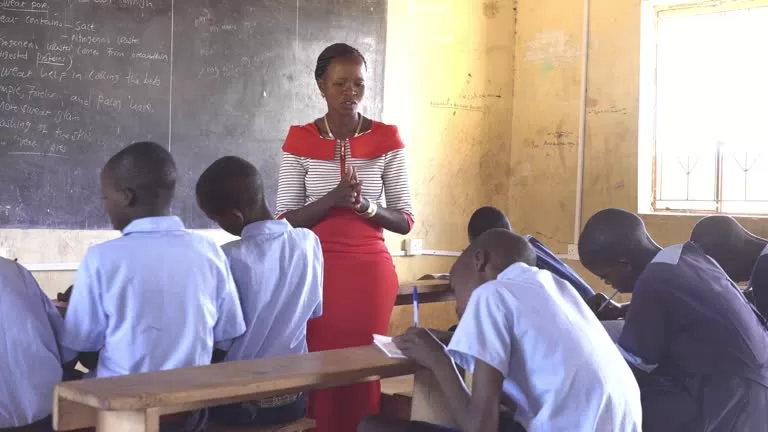Parliament Wants Nationhood Science as a Mandatory Examinable Subject in School Curriculum.
National values and principles of governance, including patriotism, national unity, devolution of power, and adherence to the rule of law, may soon be incorporated into the education curriculum.
If approved by the National Assembly, a proposed bill will mandate their inclusion as examinable content in schools.
The draft Education Laws (Amendment) Bill 2024 seeks to amend multiple education Acts, introducing “nationhood science” as an examinable subject from pre-primary through to higher education.
This initiative aims to embed national values into learners from an early stage, fostering these principles across all levels of education.
Suba South MP Caroli Omondi is sponsoring the bill to promote national values outlined in Article 10 of the Constitution.
The proposal specifically targets amendments to the Universities Act 2012, the Technical and Vocational Education and Training Act 2013, the Basic Education Act 2013, and the Kenya Institute of Curriculum Development (KICD) Act 2013.
Article 10 identifies key values such as patriotism, national unity, equity, inclusiveness, human dignity, democracy, and the rule of law. It also highlights principles like non-discrimination, integrity, accountability, and sustainable development as critical for governance and societal cohesion.
Global Comparisons and Rationale
While presenting the bill to the Budget and Appropriations Committee, Omondi cited examples of nations like Singapore and Sweden, where similar curricula have fostered societal cohesion, reduced corruption, and spurred economic growth.
Join Teachers Updates on Facebook
He argued that incorporating these values into Kenya’s educational system would strengthen the fight against corruption, tribalism, and economic mismanagement, contributing to national unity.
Omondi assured the committee that the implementation of the proposal would not impose a significant financial burden, emphasizing the long-term societal benefits.

He stated that existing institutions, schools, and teachers would be used, minimizing costs while maximizing impact. Omondi referred to the initiative as the “life of Kenya,” underscoring its importance for the nation’s future.
According to the Parliamentary Budget Office (PBO), implementing the bill will cost taxpayers KSh447 million.
Of this, KICD requires KSh142,501,425 for various preparatory activities, including policy development, curriculum design, trainer orientation, and quality assurance. The funds will also cover the creation of learning materials such as books and manuals.
Cost Breakdown at Different Education Levels
The remaining KSh305,418,551 is allocated for implementation at basic, technical, and university education levels. For basic education, KSh47,500,475 will be required in the first year, increasing to KSh50,825,508 in the second year and KSh54,383,294 in the third year.
At the TVET level, the first-year cost is projected at KSh23,750,237, rising to KSh25,412,754 in the second year and KSh27,191,646 in the third year. Universities will require KSh95,000,949 in the first year, KSh101,651,959 in the second year, and KSh108,766,587 in the final year.
ALSO READ: Public University Lecturers to Receive Salary Increment Arrears this Month
The proposed bill envisions nationhood science as a transformative subject in the education system, fostering national values and principles of governance across all levels of learning.
“The principal object of this Bill is to amend the Universities Act, 2012, the Technical and Vocational Education and Training Act, 2013, the Basic Education Act, 2013 and the Kenya Institute of Curriculum Development, 2013,” reads the Bill.
While the initial costs may seem significant, proponents argue that the long-term societal and economic benefits far outweigh the financial investment. If approved, the initiative could help build a united, equitable, and sustainable Kenya.



Discussion about this post